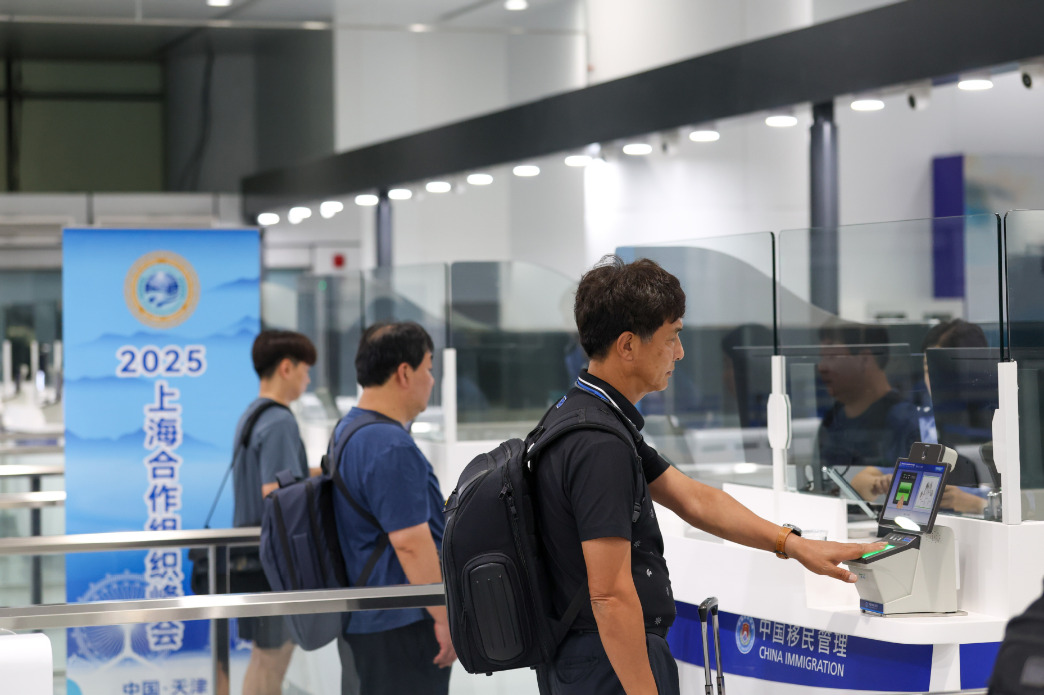Fewer Chinese studying in US due to rising tensions

The number and proportion of Chinese students studying in the United States continue to decline as rising geopolitical tensions and safety concerns weigh heavily on families' decisions, according to official reports and education experts.
The 2024 Blue Paper for Chinese Overseas Students Returning to China for Employment, recently released by the Chinese Service Center for Scholarly Exchange under the Ministry of Education, shows that while the US remains a key destination for Chinese students, its dominance is fading.
In 2023, only 14.54 percent of Chinese returnees with doctoral degrees studied in the US, down from 25 percent in 2020 — a decline of more than 10 percentage points over four years, according to the blue paper.
Among returnees from the top three study destinations — the United Kingdom, the US and Australia — 51.5 percent had studied in those countries, marking a decrease of approximately 3 percentage points from the previous year, driven primarily by the drop in the number of US-based graduates, it added.
The decline comes as more Chinese families are rethinking their higher education plans in light of worsening bilateral relations and growing concerns over safety abroad.
The Ministry of Education last week warned Chinese students to make security assessments if choosing to study in certain US states, citing a bill passed in the US state of Ohio that contains negative provisions related to China. It imposes restrictions on education exchanges and cooperation between Chinese and US higher education institutions.
"Geopolitical tensions inevitably affect the international flow of students," said Chen Zhiwen, a member of the Chinese Society of Educational Development Strategy.
"The US has increasingly restricted China in areas such as trade, technology and talent, making the study environment more hostile. Over the past four years, the number of Chinese students in the US has dropped by 100,000," Chen said, urging Chinese parents to carefully evaluate study-abroad destinations.
According to data from the 2024 Open Doors Report on International Educational Exchange, produced in part by the US Department of State, China was surpassed by India as the largest source of international students in the US for the 2023-24 academic year. There were 277,398 students from the Chinese mainland enrolled in US higher education institutions during that period, a figure that has been dropping annually since peaking at 372,532 in the 2019-20 academic year.
Chinese parents are increasingly factoring in national relations and domestic stability when considering where to send their children.
Kendy Jia, the mother of a secondary school student in Beijing, said she had been planning to send her child abroad for high school just a few years ago.
"Now, that plan is on hold," she said at the 2025 China International Education Exhibition Tour in Beijing on Friday.
"With the current international situation, we're leaning toward waiting until after high school," Jia said. "We might still consider sending him abroad for university, but not necessarily to the US. As parents, we first consider the country's relationship with China, because political stability is very important and affects our child's personal safety overseas," she said, adding that worsening international relations might also add to the cost of overseas study.
A survey by consultancy EIC Education released last month found that safety and financial support have become top concerns for prospective Chinese students during the 2024-25 academic year. The local security environment ranks fourth among factors influencing study-abroad decisions, it said.
Hannah Song, secretary-general of the America-China Education Foundation Greater China, a US-based nonprofit organization, said many Chinese parents have expressed concerns about whether bilateral relations might pose safety risks for students studying in the country.
"Parents don't need to be overly worried," she said. "Most US states and universities focused on educational exchange rather than politics. For the majority of American institutions, the impact is minimal," she said.
Despite current geopolitical tensions, Song said the US remains a top choice for many Chinese families in terms of undergraduate education.
According to the blue paper, the US kept attracting Chinese students in certain academic fields. Economics and mathematics remain the top choices for undergraduates from 2022 to 2024, while computer science and finance dominate among graduate applicants in 2024.
zhaoyimeng@chinadaily.com.cn
- Xi chairs meeting on ideological work, draft ethnic unity law
- China Coast Guard patrols waters around Huangyan Island
- In Tianjin, valuable junk gets new life
- Nearly 30% of Shanghai community canteens for seniors rated excellent
- How Xi cements neighborly bonds with SCO friends
- Stories across the Strait



































